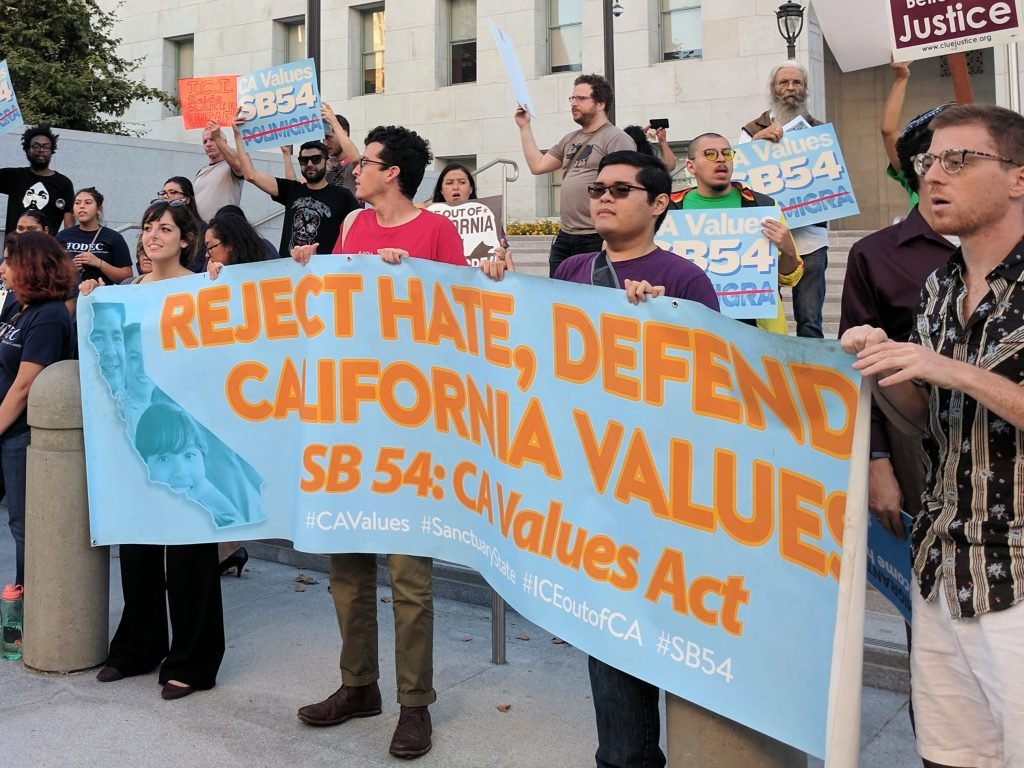In recent weeks, the city of San Clemente has found itself at the center of a heated debate over whether to join a lawsuit challenging California’s sanctuary state law, officially known as Senate Bill 54 (SB 54). This law, enacted in 2017, restricts local law enforcement agencies from cooperating with federal immigration authorities, aiming to protect undocumented immigrants from deportation.
The discussion comes amid increasing tensions between local and state governments over immigration policies. Supporters of SB 54 argue that it helps build trust between immigrant communities and law enforcement, ensuring that undocumented individuals feel safe reporting crimes. Critics, however, say that the law ties the hands of local police, making it more difficult to remove dangerous individuals from communities.
Understanding SB 54

The California Values Act, commonly referred to as SB 54, prevents state and local law enforcement agencies from using their resources to aid federal immigration enforcement, except in cases involving certain serious crimes. The law was passed as part of California’s broader effort to protect undocumented immigrants from deportation under the Trump administration’s stricter immigration policies.
Proponents argue that limiting cooperation with federal immigration officials makes communities safer by encouraging undocumented immigrants to come forward and report crimes without fear of being detained or deported. They claim this fosters a stronger relationship between law enforcement and the public, leading to better crime prevention and community policing.
However, opponents believe that SB 54 allows dangerous criminals to remain in local communities instead of being deported. They argue that local police should have the ability to work more closely with federal immigration officials to remove individuals who pose a threat to public safety.
Huntington Beach’s Legal Challenge
The renewed legal debate over SB 54 has been driven largely by Huntington Beach, a neighboring city in Orange County. In January 2025, Huntington Beach filed a lawsuit against California Governor Gavin Newsom and Attorney General Rob Bonta, seeking to overturn the sanctuary state law. The lawsuit argues that SB 54 violates the U.S. Constitution’s Supremacy Clause by obstructing federal immigration enforcement efforts.
Officials in Huntington Beach claim that the law places their city at risk by preventing local law enforcement from coordinating effectively with U.S. Immigration and Customs Enforcement (ICE). They also argue that the law compromises public safety and violates their city’s right to make its own law enforcement decisions.
The lawsuit has gained attention statewide, prompting other cities, including San Clemente, to consider joining the legal battle against SB 54.
San Clemente’s Deliberation
Following Huntington Beach’s lawsuit, San Clemente city officials debated whether to become co-plaintiffs in the case. The proposal was brought before the City Council, sparking discussions about public safety, legal costs, and the city’s role in state and federal immigration policies.
During a city council meeting, local officials voiced differing opinions on the matter. Some council members expressed concerns that SB 54 restricts law enforcement’s ability to work with ICE, making it harder to detain and deport criminals who may pose a threat to public safety. They argued that the city should take a stand against the state law, just as Huntington Beach had done.
However, others worried about the potential financial burden and legal ramifications of joining the lawsuit. A staff report estimated that participating in the legal challenge could cost San Clemente up to $100,000 in legal fees. Some council members questioned whether this was the best use of taxpayer money, especially given the uncertain outcome of the lawsuit.
Community members also weighed in, with passionate arguments on both sides. Some residents supported the idea of challenging SB 54, saying that local law enforcement should have more freedom to work with federal authorities to remove dangerous criminals. Others argued that joining the lawsuit would send the wrong message, potentially alienating immigrant communities and damaging trust between residents and police.
The City Council’s Decision
After extensive debate, the San Clemente City Council ultimately voted against joining the lawsuit. The decision reflected a cautious approach, with council members citing financial concerns and legal uncertainties as key reasons for opting out of the case.
Despite this decision, the issue remains a point of contention within the city. Some council members and residents have pledged to revisit the topic if Huntington Beach’s lawsuit gains traction in the courts. Others have called for alternative approaches, such as lobbying state lawmakers to amend SB 54 to allow more flexibility for local law enforcement.
Broader Implications for California and Beyond
San Clemente’s deliberation over SB 54 is part of a broader national conversation about immigration policies and the role of local governments in federal law enforcement. The debate over sanctuary policies has intensified in recent years, with federal, state, and local governments often clashing over the best approach to immigration enforcement.
Under the Trump administration, federal officials took a hard stance against sanctuary policies, threatening to withhold funding from cities and states that refused to cooperate with immigration enforcement. California, in particular, became a legal battleground, with the state’s leadership vowing to resist federal efforts to compel cooperation with ICE.
With ongoing legal battles and shifting political landscapes, cities like San Clemente must navigate complex legal and social issues when considering whether to support or oppose sanctuary policies. While SB 54 remains in place for now, its future could be determined by court decisions and political changes at both the state and federal levels.
Looking Ahead
For now, San Clemente has opted to stay out of the lawsuit against SB 54, but the debate over sanctuary laws is far from over. The city will continue to monitor the progress of Huntington Beach’s legal challenge, as well as any potential changes to state or federal immigration policies.
As discussions on immigration enforcement evolve, San Clemente officials will have to balance public safety concerns, legal considerations, and the diverse perspectives of their residents. Whether the city revisits the lawsuit or chooses other methods to address its concerns about SB 54, the issue is likely to remain a hot topic in local politics.
The broader conversation about sanctuary policies and immigration enforcement is expected to continue shaping policy decisions not only in California but across the United States. How cities like San Clemente navigate these debates will be crucial in determining the future of local law enforcement’s role in immigration matters.
Honoring Old Glory: The Art and Tradition of Flag Retirement






